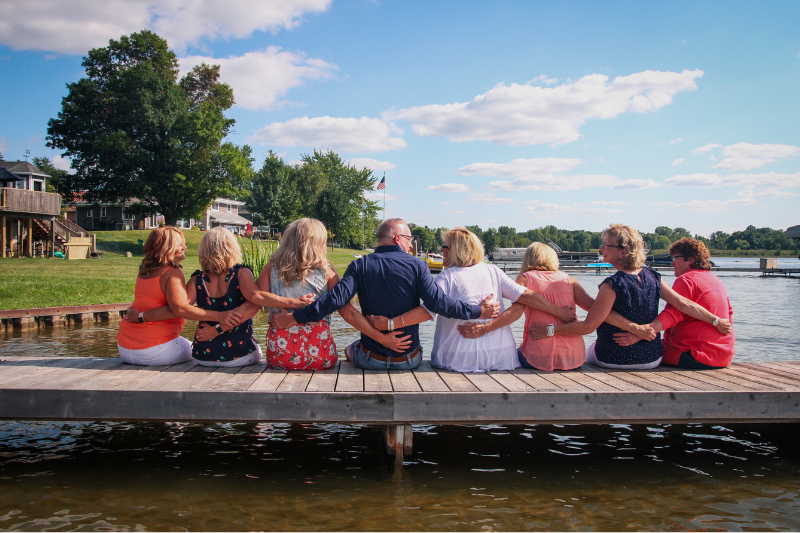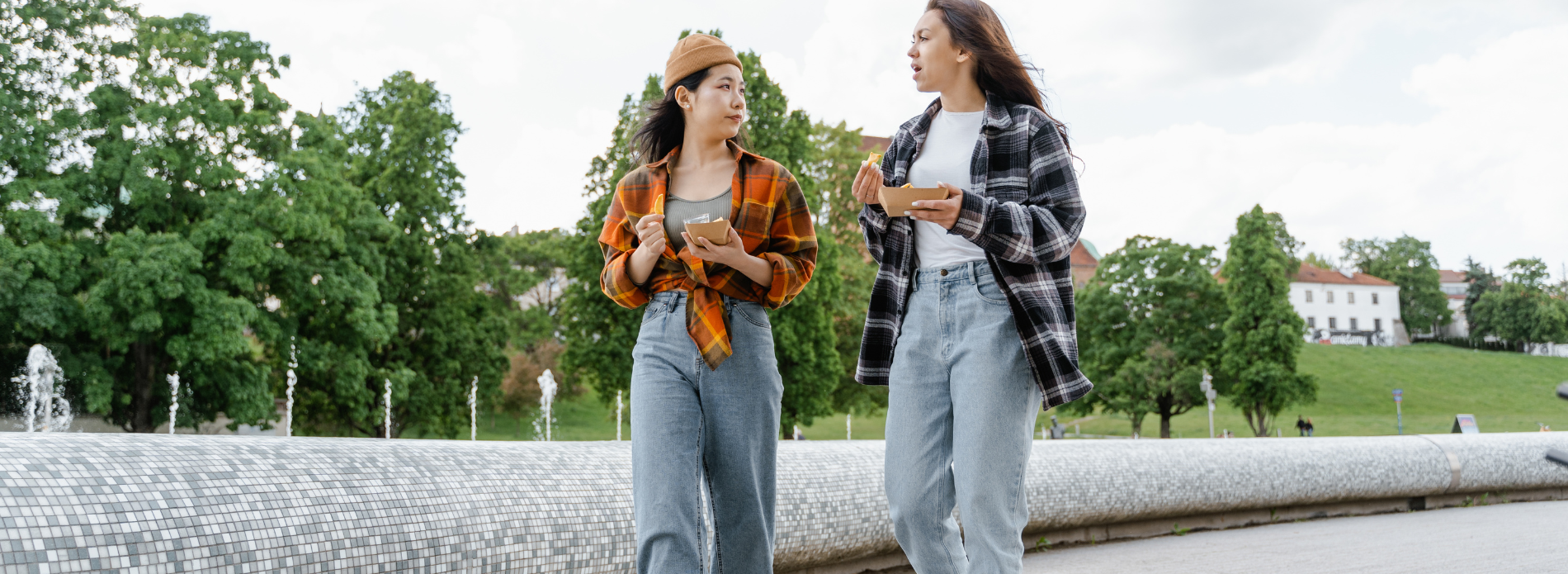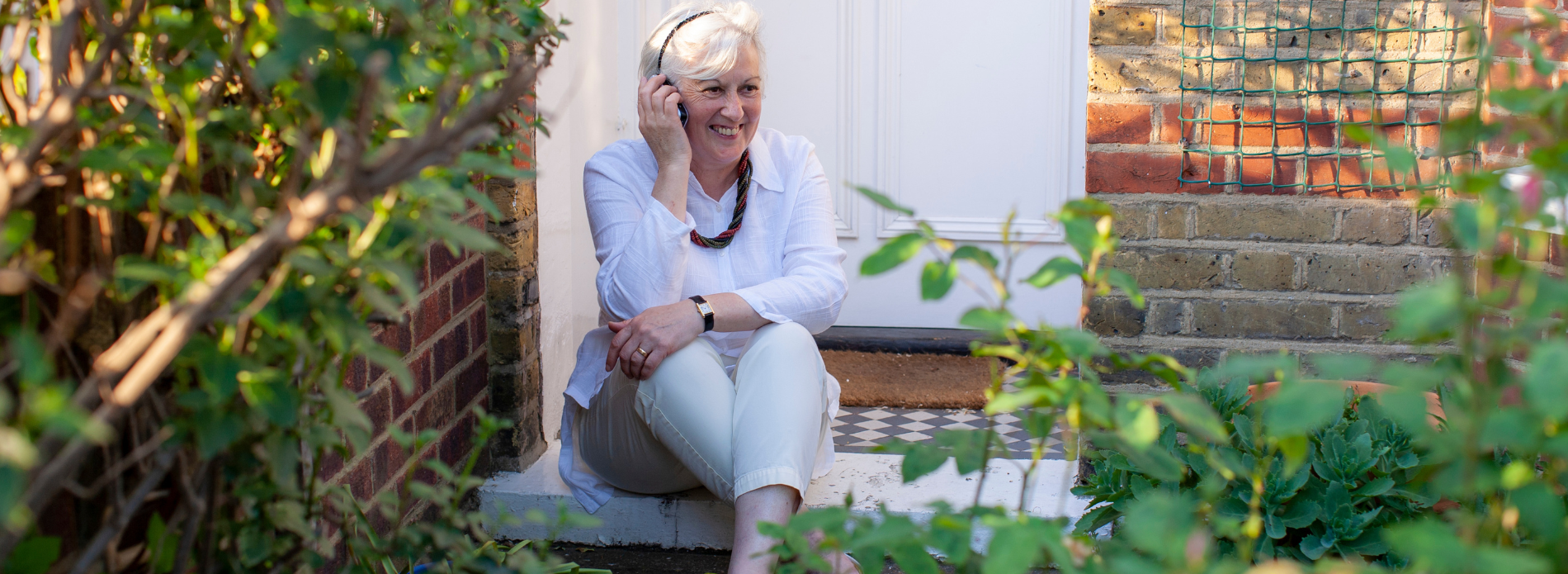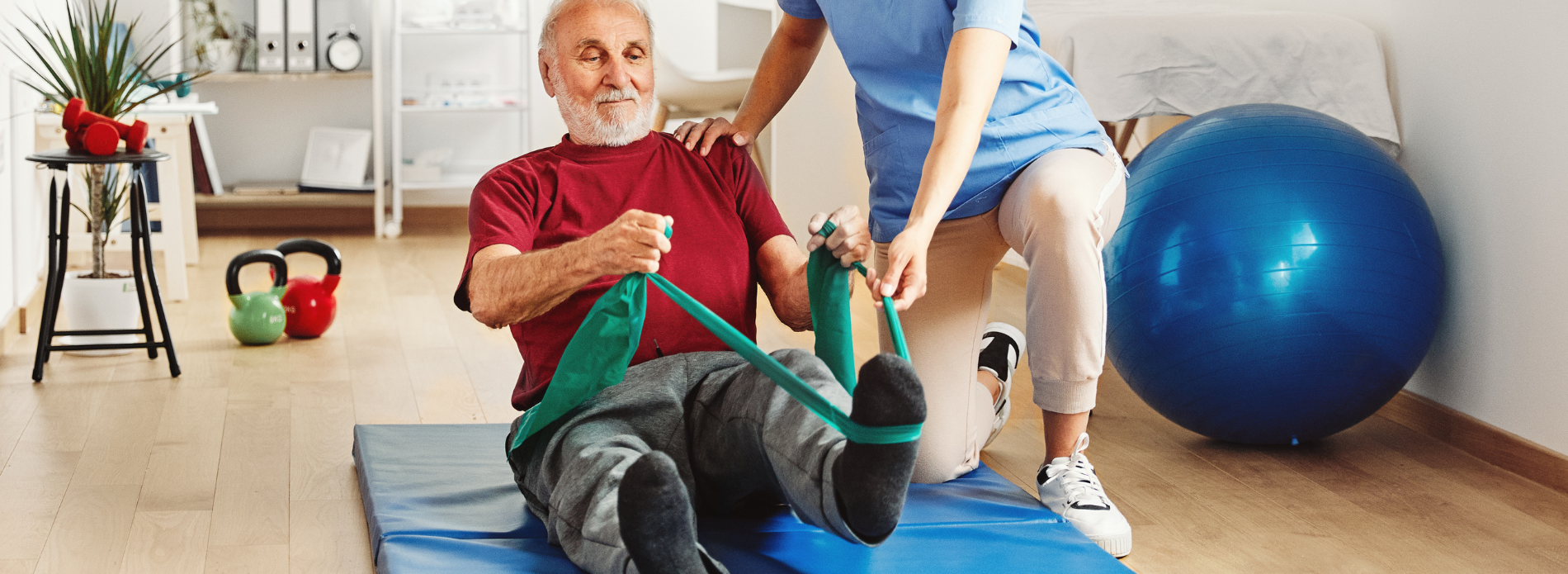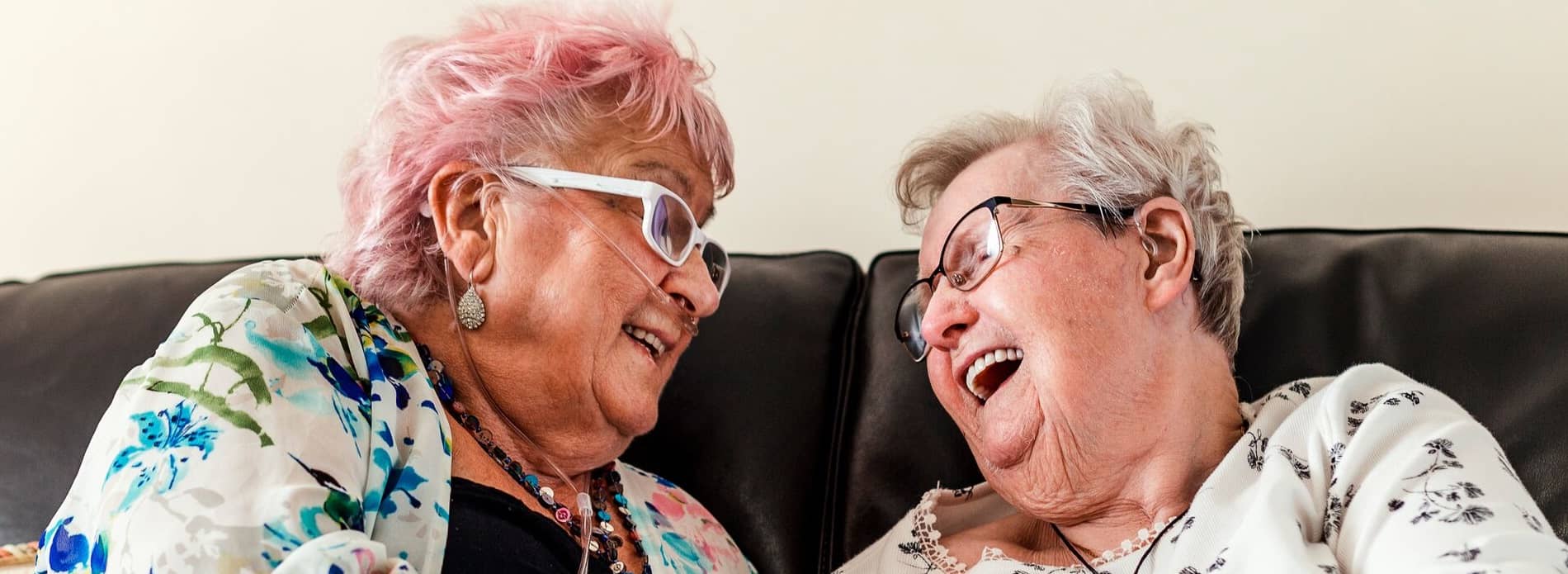We work for most of our lives, so it’s natural for our careers to form part of our identity. But… what happens when we retire? Are we missing a piece of who we are? Or is it an opportunity to fill this gap with a new passion, or purpose?
Life outside the 9-5 can involve a period of adjustment for many (which is completely understandable, and normal).
With this in mind, we look at the mental health impact of retirement and – more importantly – things you can try to support your health and wellbeing during this transitional time.
The five emotional stages of retirement
Let’s first look at some of the most common emotional stages of retirement:
- The planning stage happens long before retirement. This is when you start to consider when and how you retire, often focussing on financial planning, and lifestyle expectations. It’s a time of anticipation but can also trigger anxiety around the future and the changes it will bring.
- The excitement stage is when your retirement approaches. You might feel a sudden urge of excitement characterised by freedom, and anticipation of new opportunities. But again, this stage can be mixed with anxiety about leaving a familiar routine and social connections tied to work.
- The honeymoon stage is when you’ve retired and are enjoying the newfound freedom and leisure. This stage is often filled with travel, hobbies and relaxation. However, it’s important to recognise that this is a temporary phase and planning for the future is essential to avoid feelings of aimlessness later.
- The disenchantment stage is when the initial excitement fades and feelings of boredom, loss and purpose can surface. You may struggle with your identity and miss the structure and social interactions of your previous work life.
- The reorientation stage is the final stage where you begin to find your footing and start to redefine your identity and purpose outside of work, often engaging in new activities, volunteering or pursuing hobbies. This stage is about embracing your new lifestyle and finding fulfilment in retirement.
Understanding these stages can help you navigate the emotional landscape of your retirement more effectively, allowing for a smoother transition and a more fulfilling post-work life.
But remember - retirement is deeply personal and unique to everyone. The stages above aren’t a roadmap to follow, but examples of how you might feel at different times.
What’s important is that you check in with yourself regularly. Give yourself time and space to adjust to your new normal. If you feel like you need extra support for mentally processing your next chapter, please reach out to your GP, who can recommend the most appropriate next steps for you.
Planning can help
Putting a plan in place can provide comfort and reassurance during what can be an emotional time. For example:
- Start your retirement planning early, at least five years before. This can allow for financial planning, adjustments and mental preparation.
- Create a financial plan, covering your financial incomes, budgets, and how you can maximise your savings. You could consult with a financial advisor if this would help. There are also apps that can help you set out a budget plan.
- Establish a routine. Keeping a structure can ease the transition, which includes activities you enjoy, helping combat feelings of boredom or loss of purpose.
- Set goals and stay active. This could include hobbies, travel, volunteering, or learning new skills. Staying active can help with feeling fulfilled.
- Maintain social connections. Keep in touch with family and friends, consider joining groups and clubs that align with your interests. Social interactions are important for your emotional wellbeing.
- Address your emotional changes. Understanding that transitioning to retirement can bring a mixture of emotions, including anxiety and loss of identity. This is normal but allow yourself to experience these feelings and seek healthy coping mechanisms such as exercise, reading and talking to others.
- Focus on health and wellbeing by prioritising your physical and mental health. Engage in regular exercise, eat well and consider mindfulness practices to manage stress and enhance your overall wellbeing.
Specific feelings and how you can address them
Feeling at a loose end
You’ve spent years with a professional purpose. So, what now? Without a clear purpose, it’s common to feel a loss of identity, or anxiety around having too much time on your hands – but be kind to yourself.
Rather than trying to recover a purpose, use your retirement as an opportunity to review what you’re interested in. Has this changed?
Finding meaning and fulfilment in life after work is a process. It’s not something that happens immediately, and certainly isn’t something that should be considered as one thing, one goal.
Why not try:
- Exploring new interests, volunteering for causes you care about, or if you feel you need personal goals in place – pick the ones that most excite you.
- If you’re enjoying retirement with a partner, family member or friend – are there things you’re both interested in, which you could explore?
- Prioritising activities that bring joy and a sense of contribution to your life – big or small.
Read more > How to improve your health with a hobby
Struggling to relax
We’ve been conditioned to consider self-care as an indulgence, but actually – it’s vital to your mental, emotional and physical wellbeing.
After working for many years at a certain pace, it can feel uncomfortable to slow down and enjoy more leisurely activities. You can even feel guilty about it.
But leaning into the leisurely side of retirement can do wonders for your mental health – reducing stress and boosting happiness.
Leisure time also provides opportunities for social interaction and mental stimulation, both of which are key to maintaining cognitive health and preventing feelings of isolation.
Why not try:
- New hobbies / rediscovering old ones.
- Reconnecting with your passions.
- Seeing more of the world.
- Simply kicking back and relaxing. Diarise this time – the more you acknowledge it’s importance, the more you’ll commit to it and feel the benefits.
- When you were working, think about what helped you to relax at the end of the day. Was it listening to music on your commute home? Going for a walk? You can still apply learnings and elements of your work routine to your retirement.
Feeling sad
It’s completely understandable to feel sad when retiring. Many of us enjoy our work, our daily routine, seeing our colleagues and having a regular income. It’s a lot to walk away from all at once.
You might also experience feelings of grief. Retirement is one of the final major life transitions, so it’s not surprising that it can trigger a lot of thoughts and feelings about life, death and the meaning of it all.
Why not try:
- Mindfulness techniques such as focused breathing, mindful walking and journalling, which can encourage present-moment awareness and acceptance. This can help reduce stress and emotional reactivity. Regular practice can enhance self-awareness, helping you recognise and process your emotions more effectively, helping you to relax and feel more positive.
- Regular physical activity such as walking or yoga can boost your mood and reduce feelings of sadness.
- Building a new routine. If you love a routine, create one that includes hobbies, volunteering and / or social activities that foster a sense of purpose and connection.
- Stay connected with friends, family and support groups for emotional support and reducing loneliness.
- Keeping in mind that retirement can be a time for discovery and perhaps doing things you would never have the chance to do while you were working. Setting new goals and exploring new interests can bring a huge sense of fulfilment and excitement during the transition.
Important: If sadness persists, please reach out for support.
- Your GP can provide advice and refer you to NHS mental health services if you need extra support.
- You can also call 111 for urgent help.
- There are several mental health crisis lines for immediate and emotional support, such as the Samaritans (call 116 123 or email jo@samaritans.org for a reply within 24 hours). You can also text ‘SHOUT’ to 85258 to contact Shout Crisis Text Line.
- Charities such as Mind, Rethink Mental Illness and CALM offer advice, support groups and helplines.
- If you’re employed, many workplaces provide counselling services through an Employee Assistance Programme (EAP).
- Speak to a trusted friend or family member if you need help in finding the right support for you. Please don’t suffer in silence.
Feeling lonely and isolated
Loneliness is a common challenge faced by many retirees, especially as daily routines and work-related social interactions come to an end.
According to Age UK’s ‘You are not alone in feeling lonely’ report1, loneliness is bad for our mental and physical health. The report links loneliness with:
- Acceleration of frailty and increased risk of physical and mental illness.
- A 29% increase in risk of incident coronary heart disease.
- A 32% increase in risk of stroke.
- A 25% increased risk of dementia.
- An increased risk of mental illness including depression and anxiety.
While addressing your experience of loneliness may take time, taking steps to build new connections, or strengthening existing ones, will help.
Why not try:
- Catching up with friends and family. If this is logistically difficulty, having a chat over the phone can be the next best thing. You can also stay connected with loved ones online. Talk on a video call, exchange photos and keep up to date with the latest news from friends and family on social media or by email.
- Joining local social groups or supporting community activities.
- Helping others through volunteering. A great way to meet likeminded people and give back to your local community.
- Joining an exercise club. It’s a great way to keep fit, socialise and can boost your mental health.
- Online community groups exist in almost every niche interest group you could imagine. Could you connect with others through a shared hobby?
- Considering pet ownership for companionship and emotional support. If you enjoy the company of animals but don’t feel you’re in a place to own one, why not try fostering, to see if it could work longer term?
- Staying connected can have an incredibly positive impact on your mental health. Stay involved with the world. Be aware of what’s going on. Have conversations with young people. Don’t use retirement as a reason to step back.
Lacking mental stimulation
Keeping your brain active promotes a sense of achievement, curiosity, and purpose, which are important for emotional stability.
Why not try:
- Challenging your brain. Reading, puzzles, learning new skills, playing strategic games – all can help reduce the risk of cognitive decline and conditions like dementia.
- Taking up new hobbies, attending educational courses, or joining discussion groups to keep your mind sharp and engaged.
- Learning something new. There are lots of classes and courses out there where you can improve specific skills or learn something new, many of which are free of charge. For example, Open Learn by the Open University offers lots of free online courses on a huge range of topics. Future Learn also offers free online courses from universities around the world on a wide range of subjects, including medicine, management, history and languages. If you’d prefer something less structured, why not pop a podcast on while you do a puzzle? Visit a museum? Watch a documentary?
- Becoming a mentor or tutor, using your past career experience to share knowledge and learnings with the next generation.
Feeling exhausted
It’s natural to micro-manage your first few months of retirement. Diving into all the activities and jobs you haven’t had time to try out, or complete. This can lead to being busier than you were while working – making you feel exhausted.
An approach like this can become unsustainable very quickly, so consider a slower start to your next chapter.
Why not try:
- Planning activities, but don’t fill up your whole week doing things.
- Blocking out time to relax in your diary. Rest is just as important as keeping busy.
- Physical exercise can help boost your energy levels, such as walking, swimming or gentle exercise.
- A balanced diet rich in fruit, vegetables, whole grains and lean proteins will provide essential nutrients that support energy production.
- Establishing a consistent sleep routine can also enhance daytime alertness.
Read more > Ten top tips for a better night’s sleep
Important: Regular health checkups are important to address any underlying medical conditions that may be affecting your energy levels.
Retirement can feel like an emotional rollercoaster at times. What’s important is to be aware of how you’re feeling during this transition. Keep talking to loved ones, and make sure to reach out when you need extra support.
Useful resources
- Age UK: Free information and advice in areas including retirement and overall health and wellbeing. You can also search via your postcode to find your local Age UK if you’d prefer advice in person.
- Gov.uk: Provides a step-by-step guide on how to plan your retirement income.
- Money Helper: Provides a useful online pension calculator.
- 7 steps to deal with loneliness – Staying Healthy
- 7 physical and mental health benefits of having a pet – Staying Healthy
- The importance of social connections – Staying Healthy






